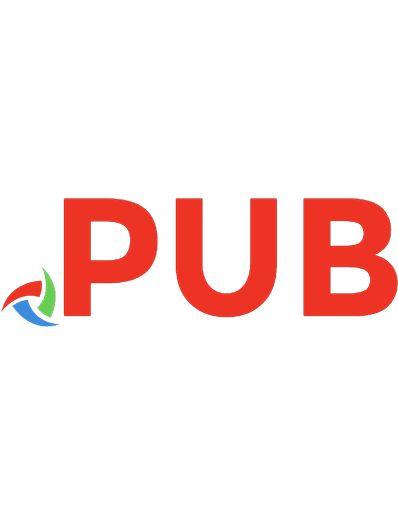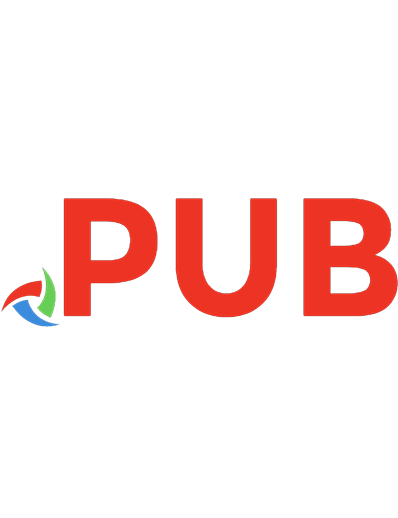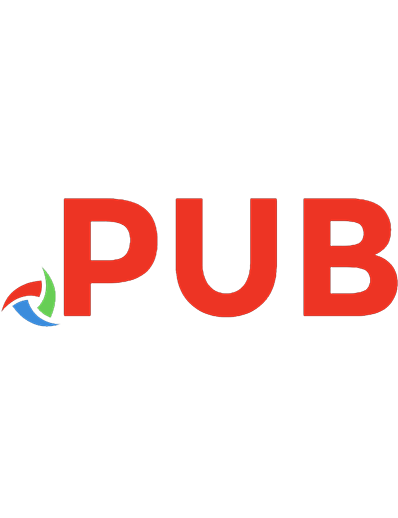Organizational analysis as deconstructive practice 3110145596, 9783110145595
This volume is the first full-length text with a systematic analysis of postmodernist theories and their implications fo
456 74 8MB
English Pages 254 Year 1996
Polecaj historie
Table of contents :
Introduction: Upstream and Downstream Thinking
Ch. 1. Ontological Realism and The Ideology of Representation
Ch. 2. Epistemological Realism and Organization Theory
Ch. 3. The Problem of Reflexivity in Organizational Analysis
Ch. 4. Reconfiguring Truth, Reality, Representation and Organization
Ch. 5. Organization as Representation: Power, Economy and Remote Control
Ch. 6. Thinking Processually: From 'Organizations' to Organizing Processes
Ch. 7. Logocentrism and Deconstruction
Ch. 8. Organizational Analysis as Deconstructive Practice.
Citation preview
de Gruyter Studies in Organization 77 Organizational Analysis as Deconstructive Practice
Unauthenticated Download Date | 1/31/20 7:58 PM
de Gruyter Studies in Organization Organizational Theory and Research
This de Gruyter Series aims at publishing theoretical and methodological studies of organizations as well as research ñndings, which yield insight in and knowledge about organizations. The whole spectrum of perspectives will be considered: organizational analyses rooted in the sociological as well as the economic tradition, from a sociopsychological or a political science angle, mainstream as well as critical or ethnomethodological contributions. Equally, all kinds of organizations will be considered: firms, public agencies, non-profit institutions, voluntary associations, inter-organizational networks, supra-national organizations etc. Emphasis is on publication of new contributions, or significant revisions of existing approaches. However, summaries or critical reflections on current thinking and research will also be considered. This series represents an effort to advance the social scientific study of organizations across national boundaries and academic disciplines. An Advisory Board consisting of representatives of a variety of perspectives and from different cultural areas is responsible for achieving this task. This series addresses organization researchers within and oi.tside universities, but also practitioners who have an interest in grounding their work on recent social scientific knowledge and insights. Editor: Prof. Dr. Alfred Kieser, Universität Mannheim, Mannheim, Germany Advisory Board: Prof. Anna Grandori, CRORA, Università Commerciale Luigi Bocconi, Milano, Italy Prof. Dr. Comelis Lammers, FSW Rijksuniversiteit Leiden, Leiden, The Netherlands Prof. Dr. Marshall W. Meyer, The Wharton School, University of Pennsylvania, Philadelphia, U.S.A. Prof Jean-Claude Thoenig, Université de Paris I, Paris, France Prof. Mayer F. Zald, The University of Michigan, Ann Arbor, U.S.A.
Unauthenticated Download Date | 1/31/20 7:58 PM
Robert Ghia
Organizational Analysis as Deconstractive Practice
W G DE
Walter de Gruyter · Berlin • New York 1996 Unauthenticated Download Date | 1/31/20 7:58 PM
Dr. Robert Chia, Senior Lecturer in Management, Department of Accounting and Financial Management, University of Essex, Great Britain
With 10 figures
@ Printed on acid-free paper which falls within the guidelines of the ANSI to ensure permanence and durability.
Library of Congress Cataloging-in-Publication Data Chia, Robert Kay Guan. Organizational analysis as deconstructive practice / Robert Chia. p. cm. - (De Gruyter studies in organization ; 77) Includes bibliographical references and index. ISBN 3-11-014559-6 (cloth : alk. paper) 1. Organization - Philosophy. 2. Organization - Research. I. Title. II. Series. HD31.C4725 1996 302.3'5-dc20 96-18620 CIP
Die Deutsche Bibliothek — Cataloging-in-Publication Data Chia, Robert: Organizational analysis as deconstructive practice / Robert Chia. - Berlin ; New York : de Gruyter, 1996 (De Gruyter studies in organization ; 77 : Organizational theory and research) ISBN 3-11-014559-6 NE: GT
© Copyright 1996 by Walter de Gruyter & Co., D-10785 Berlin All rights reserved, including those of translation into foreign languages. No part of this book may be reproduced or transmitted in any form or by any means, electronic or mechanical, including photocopy, recording, or any information storage and retrieval system, without permission in writing from the publisher. Printed in Germany. Printing: WB-Druck GmbH, Rieden am Forggensee. - Binding: Mikolai GmbH, Berlin. Cover Design: Johannes Rother, Berlin.
Unauthenticated Download Date | 1/31/20 7:58 PM
To the children of Dunblane Primary School who died so needlessly on 13th March 1996
Unauthenticated Download Date | 1/31/20 7:58 PM
Unauthenticated Download Date | 1/31/20 7:58 PM
Preface
This book is essentially about the logic and rhetoric of organizing as realityconstituting social practices. It is particularly concerned with examining the logical and rhetorical strategies deployed in the production of organizational texts and their consequent effects on our understanding of organization. As such, it is not primarily concerned with the functional analysis of organizations, nor of articulating a new alternative 'critical' perspective to the study of social organizations and their effects, nor even especially about the philosophical undeφinnings of contemporary organization theory. Instead its main concern is to systematically examine the organizing logic supporting the process of theory-building in organization studies, and to explore the textual practices and contextual circumstances which enable certain theories of organization to gain credibility within particular research commimities. In so doing, I hope to expose the many intellectual 'sleights of hand' which are to be found in much of the organization theory literature including those generated by so-called organizational meta-theorists. To do this it is necessary firstly, to examine the epistemological and ontological commitments of the various theories proffered and to show how such commitments structure and organize the discourse on organization. However this excursion into the philosophical underpinnings of organization theory is merely to draw attention to the underlying irresolvable tensions and contradictions which pervade the logic of current approaches to organizational theorizing. I trace the source of this theoretical conundrum to an excessive diet of representationalist thinking in which theories are unquestioningly regarded as straightforward attempts to accurately capture and represent an already constituted external reality. Representationalist thinking is a core feature of modernist discourse which, ever since Descartes pronounced his famous injunction, has sought to ground theoretical assertions in indubitable facts of the world. My claim here is that this is a misguided project which traditional approaches to organization theory have unreflectively participated in. This claim is based upon a postmodern rendering of the current state of the academic discipline we call organization studies. Postmodern thinking, with its radical questioning of the logical categories of thought shaping the discourse on organization, offers a more promising way of rethinking organization and consequently the intellectual role of organizational analysis. Postmodern thinking is a 'weak' form of thinking Brought to you by | Cambridge University Library Authenticated Download Date | 1/1/20 6:01 AM
УШ
Preftce
which orients us towards insistently moving 'upstream', away from the dominant concerns of mainstream organization theory, to an exploration of the linguistic and social networking micro-practices which collectively create stabilized effects that through time come to be construed as unproblematic states or entities. These entities and/or states include 'knowledge', 'truth', 'the individual', 'the organization', 'its strategy' and even 'theories of organization'. This process of reification is very insidious and pervasive in contemporary organization theory. It can be traced to the logical structuring of the English language as Chapter 6 of this book tries to show. An alter-native Heraclitean-inspired cosmology in which process, transformation and the becoming of material and social relations are accentuated, is needed for appreciating the central preoccupations of postmodern deconstructive analyses. In order to do justice to this emergent and truly processual approach to analysing social organizing processes, I shall need to traverse terrain as yet unfamiliar to the mainstream organizational theorist or indeed even some of the more progressive 'deviants' of the discipline who assiduously continue to engage in meta-level debates m organization studies. Specifically, I shall draw on the postmodern critique of the representationalist theory of truth, and the deconstructive analysis of the logic and grammar of language and writing, to illuminate this study of organization. If it is possible to chart the intellectual trajectory of organization studies as an academic discipline then it would seem that beginning with a systems view of organization, which assumed the unproblematical status of the latter as a concrete stable and describable entity, we have begun, in the recent past, to shift our attention to meta-level analyses of theories of organization which have tended to question this widespread assumption. This 'tum' to meta-theory, has been followed by an emerging awareness of the problem of language in organization theory. Language is increasingly seen as playing a crucial role in shaping the priorities and agendas of organizational research. It is increasingly recognised as a crucial but unexplored dimension of the organizational theorizing process. What is being proposed in this book is that extending the concern with language to its logical conclusion leads us to the realization that it is the grammatical logic of language, and in particular the logic of writing, which provides us with a fimdamental appreciation of the intrinsic taxonomic urge to order and organize our lifeworlds and to render them more controllable and manipulable. Organization studies thus takes on a new and radically different dimension. Instead of thinking about organizational analysis as concerning the analysis of organizations or the analyses of theories of organization, it can be more fruitfully conceived as a critical intellectual practice of deconBrought to you by | Cambridge University Library Authenticated Download Date | 1/1/20 6:01 AM
Ргейсе
К
structing or dismantling the logical and rhetorical structures of language. This is the intellectual orientation adopted by a postmodernist reading of organization. It is one inspired by an ontology of becoming. This book has undergone a lengthy process of gestation and has consumed the best part of my relatively short academic life.In pursuing this research I was not initially aware of the extent of the task I had committed myself to and am utterly convinced that without the immense support, guidance and encouragement I received from my good friend and mentor Bob Cooper, this project might still have remained in its embryonic stages. I am eternally indebted to him. In the course of my intellectual journey, and at various stages of the preparation of this manuscript, many others have given their support, suggestions and encouragement. Gibson Burrell, Mike Reed, Harry Jamieson, Seungkwon Jang, Colin Brown, Jose Malavé, Lu Yuan, Steve Fox, Vivien Hodgson, John Burgoyne and my former colleagues at the Department of Management Learning at Lancaster University provided much support and encouragement during the earlier stages of this research. More latterly I have received invaluable advice, moral support and inspiration from Stuart Morgan, Jonathan Gosling, Julia Davis, Mohammed Branine, Qi Xu, Anne Keegan and Mark Dibben who have from time to time helped share my intellectual burden and enriched me with their friendship over the last few years. This end product would not have been possible without their unwavering faith in my capabilities. Finally, I would like to thank my wife Jeanny for her love, patience and untiring support throughout this research. Robert Chia March 1996 Dunblane, Scotland
Brought to you by | Cambridge University Library Authenticated Download Date | 1/1/20 6:01 AM
Brought to you by | Cambridge University Library Authenticated Download Date | 1/1/20 6:01 AM
Table of Contents
Introduction: Upstream and Downstream Thinking Downstream Thinking and Organizational Analysis The Critique of Downstream Thinking Upstream Thinking Constructionism/Pragmatism and Upstream Thinking Organizational Analysis as Deconstructive Practice
1 2 8 11 14 17
Part 1: The Organization of Theory Chapter 1: Ontological Realism and The Ideology of Representation
25
Introduction The Status of Science Being-Realism The Fallacy of Misplaced Concreteness Representing and the Ideology of Representation The Ideology of Representation The Organization of Classical Knowledge Conclusion
25 26 31 33 35 38 39 43
Chapter 2: Epistemologica! Realism and Organization Theory
45
Introduction Scientific Realism The Organization of Science: Positivistic Knowledge The Organization of Science: Realist Knowledge Varieties of Realism Ontological and Epistemologica! Commitments of Realism Epistemologica! Realism in the Social Sciences The Science of Organization Conclusion
45 45 47 50 52 55 56 58 65
Unauthenticated Download Date | 1/31/20 7:59 PM
ΧΠ
Table of Contents
Chapter 3: The Problem of Reflexivity in Organizational Analysis
67
Introduction The Reflexive Problem of Representationalist Epistemology 'Methodological Horrors' in Representationalist Theorizing Paradox-Deferring Strategies in Organizational Analysis Reflexivity: The Postmodern Predicament Reflexive Theorizing in Organization Studies Meta-Reflexivity in Organizational Analysis Responses to the Problem of Reflexivity in Organization Studies Avoiding the Reflexivity Cul-de-Sac Conclusion
67 70 73 74 79 82 83 86 90 93
Part 2: Upstream Thinking and Postmodern Organizational Analysis Chapter 4: Reconfiguring Truth, Reality, Representation and Organization
97
Introduction Postmodernism Discontinuities and Fragmentation Postmodern Sensibilities Postmodern Pragmatism: Reconceptualising Knowledge and Truth Postmodern Priorities Towards a 'Weak' Thinking Style in Organizational Analysis Conclusion
97 98 103 105 110 115 117 118
Chapter 5: Organization as Representation: Power, Economy and Remote Control
121
Introduction The Structure of Representation Explaining Explanations Technologies of Representation The Space of Representation Organization as Representation Conclusion
121 122 124 129 137 143 146
Unauthenticated Download Date | 1/31/20 7:59 PM
Table of Contents
ХШ
Chapter 6: Thinking Processually: From Organizations' to Organizing Processes
149
Introduction The 'Will' in Organization and Representation Dismantling 'Organizations' From 'Organizations' to Organizing Processes Thinking Processually: Actor-Networks, Autopoiesis and Distributed Cognition Thinking Processually: The Linguistic Organization of Reality Conclusion
149 150 152 155 161 167 172
Part 3: Organizational Analysis as Deconstructive Practice Chapter 7: Logocentrism and Deconstruction
175
Introduction Language, Writing and the Organization of Society Derrida and the Logic of Writing Deconstruction Conclusion
175 177 182 186 192
Chapter 8: Organizational Analysis as Deconstructive Practice
193
Introduction The Case of 'Decision' in Organization Theory Deconstructing Decision-Making Rethinking the Concept of Decision After Deconstruction: Subtle Knowing and Supple Minds Implications: Deconstructive Analysis and the Educational Process Conclusion
193 193 195 204 209 211 215
Conclusions
217
References Index
221 237
Unauthenticated Download Date | 1/31/20 7:59 PM
Introduction: Upstream and Downstream Thinking To know is to put to d





![Deconstructive Criticism [Hardcover ed.]
0231054726, 9780231054720](https://dokumen.pub/img/200x200/deconstructive-criticism-hardcovernbsped-0231054726-9780231054720.jpg)



![Organizational Change: Perspectives on Theory and Practice [Illustrated]
0199573786, 9780199573783](https://dokumen.pub/img/200x200/organizational-change-perspectives-on-theory-and-practice-illustrated-0199573786-9780199573783.jpg)
